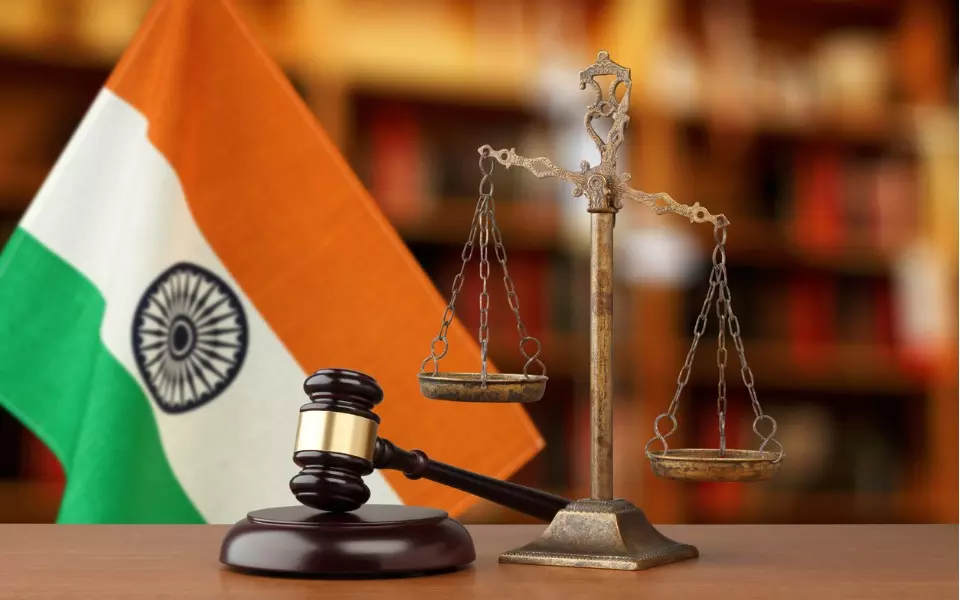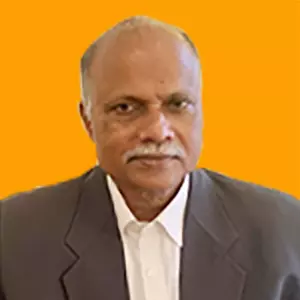
- Home
- India
- World
- Premium
- THE FEDERAL SPECIAL
- Analysis
- States
- Perspective
- Videos
- Sports
- Education
- Entertainment
- Elections
- Features
- Health
- Business
- Series
- In memoriam: Sheikh Mujibur Rahman
- Bishnoi's Men
- NEET TANGLE
- Economy Series
- Earth Day
- Kashmir’s Frozen Turbulence
- India@75
- The legend of Ramjanmabhoomi
- Liberalisation@30
- How to tame a dragon
- Celebrating biodiversity
- Farm Matters
- 50 days of solitude
- Bringing Migrants Home
- Budget 2020
- Jharkhand Votes
- The Federal Investigates
- The Federal Impact
- Vanishing Sand
- Gandhi @ 150
- Andhra Today
- Field report
- Operation Gulmarg
- Pandemic @1 Mn in India
- The Federal Year-End
- The Zero Year
- Science
- Brand studio
- Newsletter
- Elections 2024
- Events
- Home
- IndiaIndia
- World
- Analysis
- StatesStates
- PerspectivePerspective
- VideosVideos
- Sports
- Education
- Entertainment
- ElectionsElections
- Features
- Health
- BusinessBusiness
- Premium
- Loading...
Premium - Events

Given the reality of an ongoing guerrilla war on democracy and the Constitution, it is ridiculous to nominate one particular date as Constitution Murder Day
Samvidhan Hatya Divas (Day of the murder of the Constitution)!
The government has notified yet another commemorative day for the nation. Most sections of the political class see voters as dumb tools of five-yearly legitimation of their power, and passive prey available for predation the rest of the time.
But they don’t talk about it. They habitually wear a mask of solicitous concern for the welfare of the poor, the weaker sections, the suffering, the jobless, and the employed who see their real earnings being eroded by relentless price rise. But occasionally, the mask slips, and the contempt in which they hold the citizenry at large, shows through. This is one of those occasions.
Charge of murder misplaced, Constitution alive and kicking
Murder produces a corpse. Where is the corpse in the present case? The Constitution is alive and kicking, instead of being dead and rotting. So the charge of murder is misplaced. Unless Home Minister Amit Shah wants us to believe that the murdered Constitution later regained life, somehow. To say that is to invite the charge of popularising the notion of Resurrection, and, by implication, Christian beliefs.
A charge more appropriate than murder would be attempt to murder: Section 307 of the IPC should have been invoked, rather than Section 302. But the pedant would quibble, even at this. The State of Emergency is a provision in the Constitution, specifically Article 352. Invoking the provision activates the Constitution, instead of killing it.
Emergency attacked liberty
What the Emergency attacked was liberty. The fundamental rights guaranteed under Article 19 stand suspended, with the proclamation of Emergency. These rights are, lest we forget, (a) to freedom of speech and expression; (b) to assemble peaceably and without arms; (c) to form associations or unions; (d) to move freely throughout the territory of India; (e) to reside and settle in any part of the territory of India; and (g) to practise any profession, or to carry on any occupation, trade or business.
Fundamental rights vs Constitutional rights
If you wondered why (g) follows (e), rather than (f), the explanation is this: the right to own property, originally guaranteed as a fundamental right under Article 19 (1)(f), was derogated to a constitutional right, and shifted to Article 300A under a subsequent amendment to the Constitution. And if you wondered how a constitutional right is different from a fundamental right — after all, fundamental rights are also provided by the Constitution, rather than by Ashoka’s edict, party manifesto, or the national anthem — the distinction is that fundamental rights accrue to all citizens, while so-called constitutional rights accrue to those to whom the Constitution grants those rights. For example, the right to vote is restricted to only those who have attained the age of 18, and is not a fundamental right.
Further, all of the rights guaranteed under Chapter 13 on fundamental rights could originally be suspended by a Presidential Proclamation while a state of Emergency was in force, as per Article 359. This was later amended, after the bitter experience, during the Emergency, of the President, and even the judiciary, knuckling under before imperious political will to effectively suspend the right to life, liberty and legal recourse (Article 21) and the right against self-incrimination and double jeopardy (being prosecuted more than once for the same offence), under Article 20.
Now, these two fundamental rights remain active, even during a state of Emergency, following the 44th Amendment, carried out by the Janata government in 1978.
The Emergency was lifted by the same leader who imposed it. Indira Gandhi then called general elections, was trounced and taught a lesson by the people of India. But it was not just Indira Gandhi and her Congress party who learned lessons from the experience of the Emergency and its aftermath. So did her political opponents, chief amongst whom we should recognise the Rashtriya Swayamsevak Sangh and its assorted offshoots, including the current ruling party, the BJP, collectively called the Sangh Parivar.
Sangh Parivar’s guerrilla campaign to undermine Constitution
The lesson the Sangh Parivar learned is that a frontal assault on liberty invites the people’s wrath, while a sustained guerrilla campaign to undermine and curtail the rights guaranteed by the Constitution, and the very premise of democracy itself, has a better chance of succeeding, without meeting with concerted resistance. The end goal of this guerrilla campaign is to replace constitutional democracy, which gives all citizens equal rights, regardless of their faith, with a Hindu Rashtra, a state in which Hindus have primacy, and those who follow minority faiths live as second-class citizens.
The formal declaration of this goal is contained in texts that the RSS no longer openly stands by, such as MS Golwalkar’s We or Our Nationhood Defined or Bunch of Thoughts. But India has a long tradition of ideas being passed on by word of mouth, across space, and across generations. The goal of purging Hindu India of all extraneous influences lives on in the Sangh Parivar in this fashion.
This is set in motion, with violence, when it comes to mosques that are deemed to have come up where Hindu shrines originally stood. Or in the case of putting an end to the eating of beef, never mind that large sections of Hindus outside the Hindi belt have traditionally consumed beef. The bulldozing of buildings in Muslim localities, or, in some cases, barring Muslim traders from certain locations falls in the same category. The renaming of places to get rid of Muslim-inspired names is, of course, relatively bloodless.
Biggest assault on Constitution
The idea of creating different classes of citizens is the biggest threat to India, not just as a modern democracy, but as the contemporary vehicle of its traditional genius for diversity, inclusion, and rejection of the notion of homogeneity in the conception of divinity. Traditional India, for example, loves and respects ascetic saints. The Sangh’s perversion of Hindu practice would bar Hindus from worshipping the Shirdi Sai Baba, whose message that everyone responds to the call of the self-same master the Sangh deems unacceptable, because the Baba is believed to have been born a Muslim.
The Prime Minister’s election-time description of Muslims as infiltrators and people who have more children articulates the sectarian concept of Indian nationhood as the Hindu Rashtra. That desire to redefine Indian nationhood is the biggest assault on the Constitution that is underway right now.
New criminal laws passed without legislative debate
When Parliament passed the new criminal laws to replace the Indian Penal Code, the Criminal Procedure Code, and the Indian Evidence Act, it did so at a time when 146 Opposition MPs stood suspended. The laws were passed without debate. When a law is challenged for its constitutional validity, the Supreme Court often resorts to ascertaining the legislative intent behind the law. For that, it examines the discussion in the House of the bill preceding its passage into law. In the case of the new three laws that together determine how the fundamental rights to life and liberty are implemented, there is no legislative debate to determine the legislative intent. These new laws curtail liberty and give the police additional arbitrary powers.
Given the reality of an ongoing guerrilla war on democracy and the Constitution, it is ridiculous to nominate one particular date as Constitution Murder Day.
Political purpose of announcement
But it does serve a political purpose. In the recent Lok Sabha elections, the BJP was believed, at least in Uttar Pradesh, to be campaigning to secure a large enough majority to amend the Constitution, and get rid of reservations. The Constitution is dear to Dalits, who consider it as the handiwork of their beloved leader, Ambedkar, and to the Minorities, who see it as the guarantor of minority rights. The BJP does not want to be known as the party that opposes the Constitution. It wants to put the Congress in the dock on this count.
Hence the institutionalisation of a Constitution Murder Day to link the Congress with the forces inimical to the Constitution and its values. Pedants can go choke themselves.
(The Federal seeks to present views and opinions from all sides of the spectrum. The information, ideas or opinions in the articles are of the author and do not necessarily reflect the views of The Federal)


